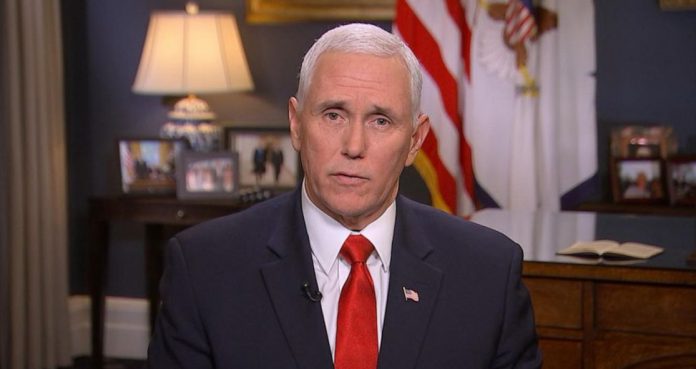On Wednesday, President Donald Trump announced that Vice President Mike Pence will be in charge of the U.S. response to the coronavirus outbreak.
Addressing from the White House, Trump said that the risk of the coronavirus in the United States “remains very low,” amid ongoing concerns that the virus would affect people globally.
He said, “The spread of the disease in the U.S. isn’t ‘inevitable.” However, he noted that it is possible that it “could get fairly substantially worse.”
Trump said the United States is ready for “anything,” including an “outbreak of larger proportions.”
To tackle the ongoing situation, Trump said he would be putting Pence in charge of the response.
The president said Pence has “a certain talent for this,” claiming that his “experience with health care policy as governor of Indiana made him a good fit for the role.”
The vice president will be in charge of coordinating the medical professionals who are working to contain the virus and kept it at bay in the U.S.
Shortly after returning from a state visit to India, Trump told reporters, “We’re really down to probably 10” cases.
So far, the coronavirus has affected 60 people in the United States, while China has reported nearly 78,500 cases, with 2,747 deaths.
The CDC confirmed the first possible “community spread” of the coronavirus, aka COVID-19, in the U.S. was found in a patient in California. However, the agency said it is unclear how the patient contracted the virus.
The reporters asked Trump about his decision to put Pence in charge of the US response to the virus. He replied, “Mike’s not a czar. This isn’t a czar … I have very talented people. I want to use them on this.”
HHS Secretary Alex Azar told reporters that he is still the chairman of the coronavirus task force, adding he is “delighted” to have Pence “helping” him on the plan. On Wednesday, Azar testified before Congress that the Trump administration’s response to COVID-19 “has been the smoothest interagency process I’ve experienced in my 20 years of dealing with public health emergencies.”























